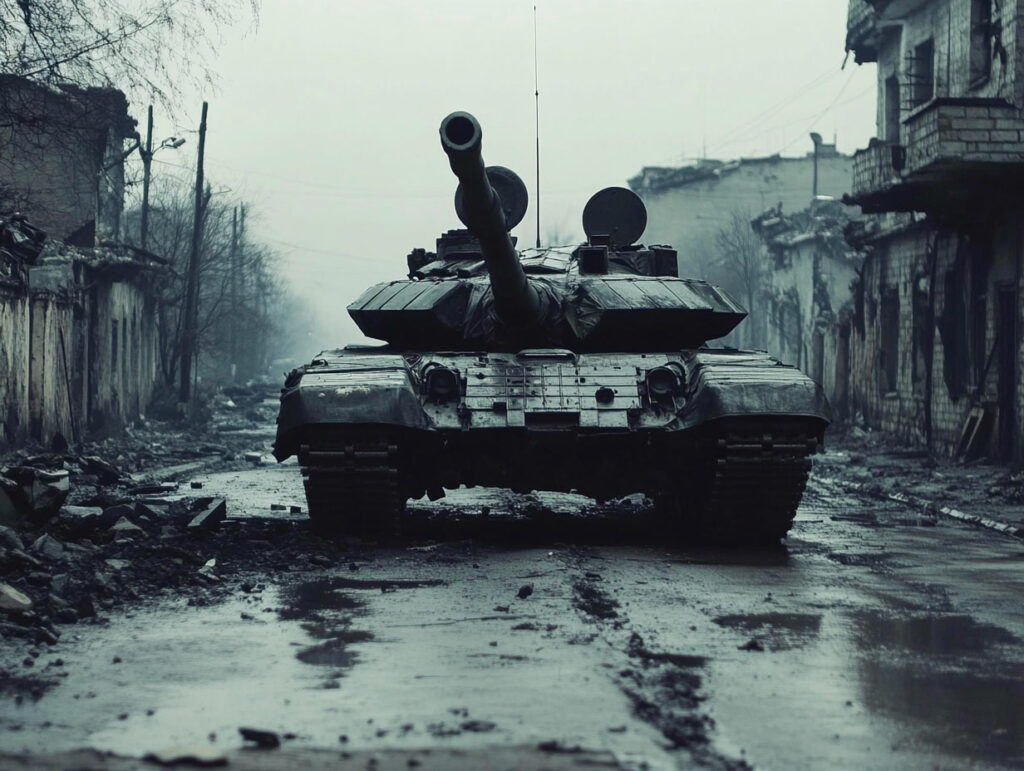
Direct talks between the United States and Russia on Ukraine, without European participation, raise concerns about the continent’s security and the future of NATO.
The United States, under the Trump administration, has begun direct negotiations with Russia over the conflict in Ukraine, excluding European and Ukrainian partners. This prompted an emergency meeting of European leaders in Paris, where differences emerged over the appropriate response. The UK proposed sending troops to Ukraine to guarantee its post-agreement security, while Germany considered this initiative premature. This situation highlights Europe’s dependence on American leadership in security matters, and raises questions about Europe’s ability to act autonomously in the face of Russian aggression.
U.S.-Russian negotiations exclude Europe: a new diplomatic deal
The Trump administration recently initiated direct talks with Russia to resolve the conflict in Ukraine, without including European nations or even Ukraine in the discussions. This unilateral approach has caused great concern among European allies, who feel marginalized in a matter directly affecting the continent’s security. French President Emmanuel Macron quickly called a meeting in Paris with British, German and other European leaders to work out a joint response to the situation.
Europe’s exclusion from the negotiations calls into question the traditional role of transatlantic alliances, and raises concerns about the effectiveness of international cooperation in resolving regional conflicts. Decisions taken without the participation of the main players concerned may lead to unbalanced and potentially ineffective agreements. Moreover, this could encourage other powers to adopt similar strategies, thereby weakening the multilateral mechanisms established to maintain international peace and security.

European divergences on the Ukrainian crisis
During the meeting at the Élysée Palace, notable differences emerged between European leaders on how to respond to the situation in Ukraine. British Prime Minister Keir Starmer proposed sending troops to Ukraine to guarantee its security after a possible peace agreement. German Chancellor Olaf Scholz, on the other hand, described the proposal as “premature” and “highly inappropriate”. For their part, Polish officials also rejected the idea of Polish military involvement in Ukraine.
These differences reflect the persistent challenges facing Europe when it comes to formulating a unified foreign and defense policy. National interests, threat perceptions and strategic priorities vary considerably from country to country, making it difficult to adopt a common position. This fragmentation can be perceived as a weakness by external actors, prompting them to exploit these divisions to advance their own agendas. To strengthen its position on the international stage, Europe will have to overcome these divergences and work towards a deeper integration of its security and defense policies.
European dependence on American leadership: a persistent reality
Historically, Europe has often relied on American leadership to forge consensus and maintain unity, particularly during major international crises. In 1995, for example, it was US President Bill Clinton’s decisive intervention that led NATO to launch a bombing campaign in Bosnia, paving the way for the Dayton Accords and putting an end to the conflict. Similarly, in 2022, faced with Russia’s invasion of Ukraine, President Joe Biden coordinated a Western coalition to provide substantial military aid to Kiev and impose tough economic sanctions on Moscow.
This dependence underlines the need for Europe to develop its own defense capabilities and strengthen its collective decision-making structures. Without such strategic autonomy, the continent will remain vulnerable to fluctuations in US policy and external pressures. The establishment of an integrated European defense, though complex, could offer a long-term solution for ensuring the region’s security and stability.
The call for increased European defense spending
Faced with American pressure for NATO members to increase their defense spending to 5% of their gross domestic product (GDP), a crucial question arises: is Europe ready to shoulder a greater share of the security burden? Currently, most European countries devote less than 2% of their GDP to defense, well below American expectations. For example, in 2024, defense spending by EU member states reached 1.9% of GDP, or around €326 billion. Among the top contributors, Poland spent 4.1% of GDP on defense, while France and Sweden each allocated 2.1%. In comparison, the United States spent around 3.4% of its GDP in 2023 on its defense budget.
To reach the target of 5% of GDP, European countries would need to significantly increase their military budgets, which would represent a substantial financial effort. This could require tax reforms, reallocation of budgetary resources, or even the creation of common funding mechanisms within the European Union. However, such changes could meet with political and social resistance, particularly in countries where public opinion is traditionally opposed to increased militarization. What’s more, increased defense spending could lead to budgetary tensions, particularly in times of economic slowdown. Some governments may be reluctant to cut other priority spending items, such as education, health or infrastructure, to finance a significant increase in the military budget.
Risks and consequences of American disengagement from Europe
If Europe fails to organize itself and guarantee its own security, it could face increased geopolitical destabilization. Historical dependence on US military power has helped to contain external threats and ensure a strategic balance in Europe. However, a gradual withdrawal of the United States from the European scene could have several implications.
Firstly, Russia could be encouraged to adopt a more aggressive posture towards its neighbors, notably the Baltic States, Moldova and Georgia. Since annexing Crimea in 2014 and invading Ukraine in 2022, Moscow has demonstrated its desire to redefine the European security order by openly challenging established borders. Without a credible Western military counterweight, similar initiatives could be attempted elsewhere.
Secondly, the weakening of NATO as a result of American disengagement could also call into question the political stability of Europe itself. Deep-seated differences between member states over the management of external threats and the sharing of military responsibilities could further weaken European cohesion. In an extreme scenario, some countries could even question their membership of the Atlantic Alliance if they feel it no longer guarantees their security.
Finally, the perception of a Europe unable to guarantee its own security could also have economic repercussions. A climate of heightened uncertainty on the continent could lead to capital flight, higher risk premiums on sovereign debt and a drop in foreign investment. By 2023, foreign direct investment (FDI) in Europe had already fallen by 17% compared to 2021, due to geopolitical tensions and economic uncertainty. A weakening of continental security could exacerbate this trend.

What are the alternatives for a more militarily independent Europe?
Faced with these challenges, Europe has several options for strengthening its defense capability and reducing its dependence on the United States.
One solution could be the development of an integrated European defense force, complementary to NATO. For several years now, the European Union has been exploring this idea through initiatives such as Permanent Structured Cooperation (PESCO), which aims to strengthen military coordination between member states. However, this approach runs up against political obstacles, not least the reluctance of some countries to delegate their defense sovereignty to a supranational entity.
Another option would be to strengthen member states’ national military capabilities, by encouraging investment in the defense industry and equipment modernization. At present, the European armaments industry remains fragmented, with a multitude of national players who sometimes compete with each other. An effort to consolidate and pool resources could improve efficiency and reduce production costs. In 2023, arms exports from EU countries represented around 13% of the world market**, far behind the USA (40%) and Russia (16%). Better coordination could enable Europe to strengthen its strategic autonomy.
Finally, the EU could explore partnerships with other military powers such as Japan, India or Australia, which share similar security concerns and could be strategic allies in the face of rising global tensions. Enhanced military cooperation agreements with these countries could help to diversify alliances and reduce dependence on the United States.
A turning point for European security
Direct negotiations between the USA and Russia on Ukraine, without European participation, have highlighted the fragility of Europe’s defense policy. The inability of member states to speak with a single voice and propose a coherent strategy risks jeopardizing the continent’s stability.
The future of European security will depend on leaders’ ability to overcome divisions and invest in a common defense. If Europe fails to assume a more central role in its own security, it will remain dependent on decisions taken in Washington, and vulnerable to the aggressive strategies of external actors.
The time has come for Europe to assert its strategic autonomy and fundamentally rethink its approach to security and defense.
War Wings Daily is an independant magazine.